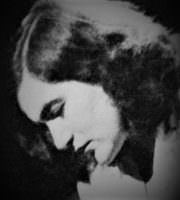About Selma Meerbaum-Eisinger
Selma Meerbaum-Eisinger born in February 1924 in Cernauti in Bukovina then in the kingdom of Romania today Chernivtsi in Ukraine, died on December 16, 1942 in the forced labor camp of Michailowka in Ukraine was a German-speaking poet, who, as a Jew victim of persecutions. At a very young age, Selma began to read authors who had a great influence on her work: Heinrich Heine, Rainer Maria Rilke, Klabund, Paul Verlaine and Rabindranath Tagore. Some of Selma Merbaum's poems date back to 1939. She also translates from French, Romanian and Yiddish into German. She was also the first cousin of Paul Celan.Selma Merbaum's work is made up of 57 poems, which she wrote carefully in pen, each one on a separate page and then bound into an album entitled [Anthology]. She dedicated it to her friend Leiser Fichmann, a member of the Zionist youth group Hashomer Hazair. 52 written by Selma herself, and 5 that she translated from other languages. The poems were written in Czernowitz between May 1939-December 1941, those dating from October 1941 being written in the ghetto. She called her poetry series Blütenlese (Harvest of Blossoms).
On her way to deportation, she was able to give the album to an acquaintance, who gave it to her friend Else, asking her to give it in turn to Leiser. Leiser Fischmann took the volume with him to the labor camp, where he returned it to Else, before fleeing to Palestine. His boat was torpedoed, only five passengers survived, he was not among them. But Selma's poems were transported to Israel by her friend. His Yiddish school teacher, Hersch Segal, self-published them in 1976.
The real discovery of Selma Meerbaum poetry resulted from the report of the newspaper Stern, by the journalist Jürgen Serke, that Hilde Domin had sensitized to these poems. Serke had the poems published under the title Ich bin in Sehnsucht eingehüllt (I Am Shrouded in Nostalgia) by the publisher Hoffmann und Campe. In November 2005 a new edition appeared, as well as an audio book with Iris Berben. These projects were initiated by David Klein, who set twelve of Selma's poems to music, interpreted by Xavier Naidoo, Reinhard Mey, Ute Lemper and many others. Selma Merbaum's salvageable poems are primarily about impressionistic romances, elegies to nature of remarkable stylistic mastery, steeped in melancholy. Hilde Domin confessed to having read Selma Merbaum's poems, so pure, so beautiful, so clear, so menacing while crying with anger. The work of the young author belongs with the poems of Rose Ausländer and Paul Celan to the literary heritage of the Jewish-German culture of Bukovina.
Selma Meerbaum-Eisinger died of typhus at the age of eighteen. Her work is often classified as World Literature.
Browse all poems and texts published on Selma Meerbaum-Eisinger









